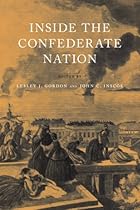

In The Problem of Democracy in the Age of Slavery; W. Caleb McDaniel sets forth a new interpretation of the Garrisonian abolitionists; stressing their deep ties to reformers and liberal thinkers in Great Britain and Europe. The group of American reformers known as "Garrisonians" included; at various times; some of the most significant and familiar figures in the history of the antebellum struggle over slavery: Wendell Phillips; Frederick Douglass; and William Lloyd Garrison himself. Between 1830 and 1870; American abolitionists led by Garrison developed extensive networks of friendship; correspondence; and intellectual exchange with a wide range of European reformers—Chartists; free trade advocates; Irish nationalists; and European revolutionaries. Garrison signaled the importance of these ties to his movement with the well-known cosmopolitan motto he printed on every issue of his famous newspaper; The Liberator: "Our Country is the World—Our Countrymen are All Mankind." That motto serves as an important but underappreciated cue for McDaniel's study; which shows that Garrison and his movement must be placed squarely within the context of transatlantic mid-nineteenth-century reform. Through exposure to contemporary European thinkers—such as Alexis de Tocqueville; Giuseppe Mazzini; and John Stuart Mill—Garrisonian abolitionists came to understand their own movement not only as an effort to mold "public opinion" about slavery but also as a measure to defend democracy in an Atlantic World still dominated by aristocracy and monarchy. While convinced that democracy offered the best form of government; Garrisonians recognized that the persistence of slavery in the United States revealed problems with the political system. They identified minority agitators as necessary to the health of a democratic society. Ultimately; Garrisonians' transatlantic activities reveal their deep patriotism; their interest in using "public opinion" to affect American politics; and their similarities to other antislavery groups. By following Garrisonian abolitionists across the Atlantic Ocean and exhaustively documenting their international networks; McDaniel challenges many of the timeworn stereotypes that still cling to their movement. He argues for a new image of Garrison's band as politically savvy; intellectually sophisticated liberal reformers; who were well informed about transatlantic debates regarding the problem of democracy.
#2801531 in Books Gordon Lesley J 2007-02-01 2007-02-01Original language:EnglishPDF # 1 8.94 x .84 x 6.34l; 1.19 #File Name: 0807132314400 pagesInside the Confederate nation
Review
5 of 5 people found the following review helpful. A superbly presented and organized model of anthologized; specialized; analytical historical studies.By Midwest Book ReviewThe academically impressive and deftly collaborative editorial effort of Lesley J. Gordon (Associate Professor of History; University of Akron) and John C. Inscoe (Professor of History; University of Georgia); "Inside The Confederate Nation" is a compilation of essays in honor of Emory M. Thomas by a series of learned contributors and scholars that focus on the subject of the conservative revolution of 1861 that transformed an essentially conservative American South into a radically different socio-political culture by the conclusion of the Civil War in 1865. The contributions are organized into four major sections: 'Nationalism and Identity'; 'Family and Gender'; 'Race'; 'Memory and Legacies'. Enhanced with an informative introduction by Professors Gordon and Incoe; and the article by Russell Duncan and Jennifer Lund Smith; 'Emory M. Thomas and the Confederate Imagination'; and concluding with a Select Bibliography; a list of Editors and Contributors; and a comprehensive Index; "Inside The Confederate Nation is a superbly presented and organized model of anthologized; specialized; analytical historical studies. Also available in a hardcover edition (9780807130995; $65.00); "Inside The Confederate Nation" is a very strongly recommended addition to academic and community library Civil War Studies and 19th Century American History Studies reference collections and supplemental reading lists.